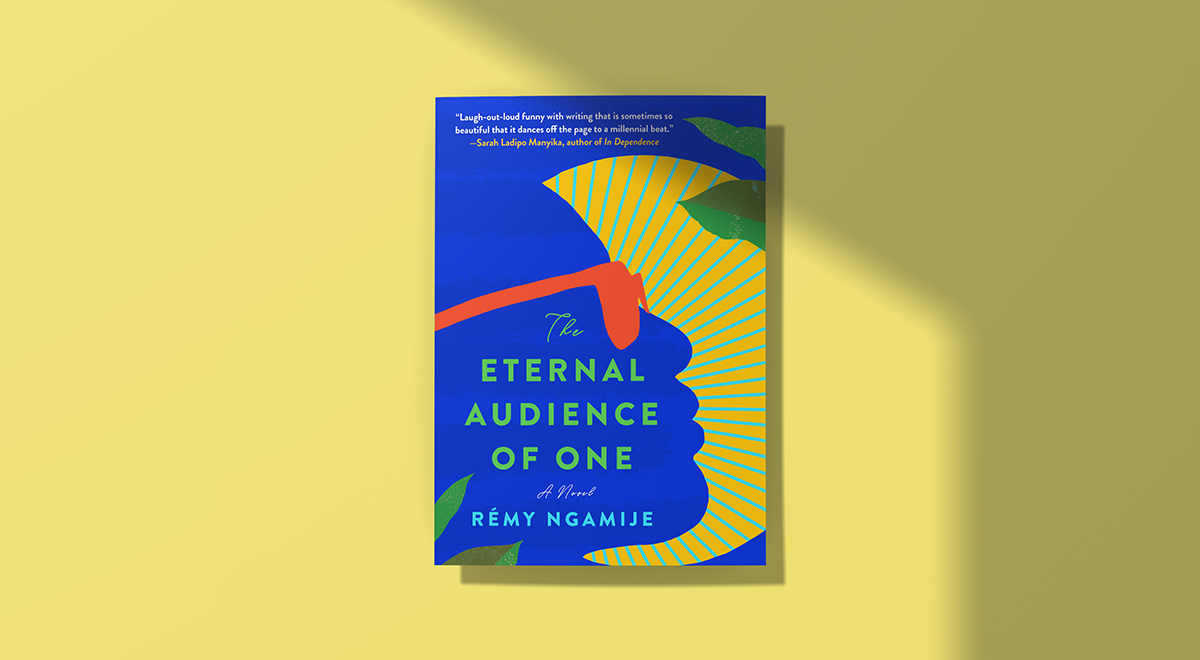Ukize inkuba arayiganira.
“To survive the thunder is to tell the tale.”
—Rwandan proverb
If the pandemic is the storm in question then I will reserve my story for later. Lost incomes and the ensuing instability they have caused; uncertainty surrounding local, national, and international travel and movement; an inability to make any medium or long-term plans; lockdowns, curfews, cabin fever, and endless Zoom meetings—these are just some of the many curses that came with COVID-19. There are others, unnamed and unlisted. They are worse.
The thunder rages on. The respite remains elusive. And the tale remains to be told.
I am not sure if I understood the gravitas of the proverb when I chose it as the epigraph of the first part of The Eternal Audience Of One. When I commenced work on the draft manuscript in 2016, in a cold July filled with more stops than stars, I merely thought it was a good example of the wry humour Rwandans have. The proverb’s primary meaning is this: everything is a mere story when it has been survived. Its contextual use is often light, like when someone jokes about being chased by a dog on their way home from the neighbourhood convenience store in Windhoek—if you survive the pit bull’s teeth you will have one heck of a tale. The proverb contains something to rally towards for the present days: that they will become memoir, biography, criticism, and fiction—with time they will become mere stories.
And that darker caveat: if you make it through.
Man, Rwandans get dark quick-fast. But there is a good reason for it, one that is mirrored by the histories of the past: only survivor tales get told. Since last year, my like everyone else, I have just been trying to survive.
Why?
The Eternal Audience Of One, my debut novel, was scheduled to be internationally published by Scout Press, an imprint of Simon and Schuster, in August, 2021.

Given the quagmire the world entered in March last year the release date could have been Random Date, 2076.
With so much uncertainty about the coronavirus, national and international containment and preventative measures which were disregarded more than they were followed, as well as ballooning infection and random deaths, that point-whatever fatality rate was too high for me. It was a strong motivator for staying indoors and curtailing my movements. It kept me away from braais with family or friends. I did my grocery shopping when I knew shops would be less crowded. I looked at proffered handshakes and thought, nah, I have tracked changes I need to wade through later. Huggers were dodged like a Kansas City Chiefs defence so I could fix structural errors in the manuscript—there were end zones I planned on seeing. Public sneezes made my armpits sweat. Ma’fucker, are you trynna to kill me before I see the cover for this book?
It is safe to say that I have been thoroughly shook.
Yeah, this past year was too much and not enough at the same time.
It has not been all bad, though. While 2020 stole most of my movement-based pursuits it did provide me with plenty of time to read, write, and launch new creative and literary projects. I was fortunate enough to find numerous and varied homes for my short stories; I worked with one of the best editorial teams to bring Doek! Literary Magazine to new audiences; and, I was afforded the time to conceptualise and commence the arduous process of incorporating Doek, a literary arts organisation that dwelled at the back of my mind and in the shadows of my ambitions for a long time.
Mostly, though, completely recommitting to Séraphin, his family, his friends, his world, and his story could not have happened without the long periods of isolation mandated by the pandemic. The editing process was detailed, rigorous, and ultimately rewarding. The good people at Scout Press and I walked that fine line between compromise and sacrifice together, deciding what to clarify, trim, and expand. In the timelessness of a freshly-digitised life full of endless streaming and haphazard working hours the editorial deadlines became the only recognisable time markers. They delineated epochs into first and second round edits, cover selection discussions, and back and forth emails about typographic layouts for the final text. The going was slow at first, but it has quickened since 2021 rolled around. The current is picking up and the momentum is shifting. The tenor of the communication has changed: marketing, distribution, events, the final cover—the final cover!—and, of course, putting out and placing work leading up to August. It seems like the new edition will be a Leo like its Blackbird Books predecessor. (Lord, please do not make it a Virgo!)
Outside, and elsewhere, vaccines are being rolled out. Inside, right here and now, the second pass reading of the advanced reader copy awaits. More slow time. More thunder. The goal is to make it to what my American publishers call Fall.
Because The Eternal Audience Of One is coming out and it has a story to tell.
So it is two steps back, ma’fucker. No handshakes or hugs either. And if you sneeze, I might have to take out a contract on you.